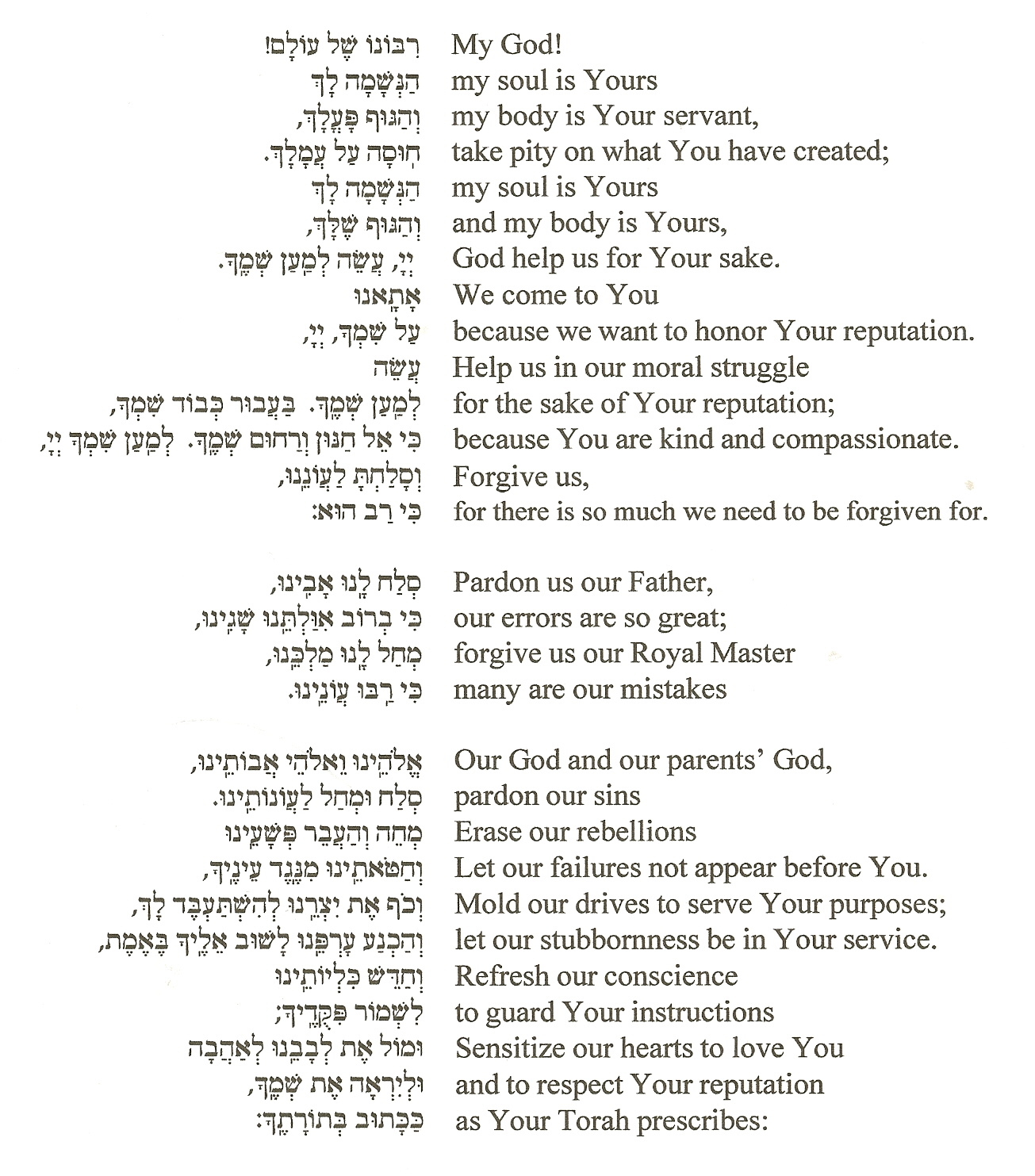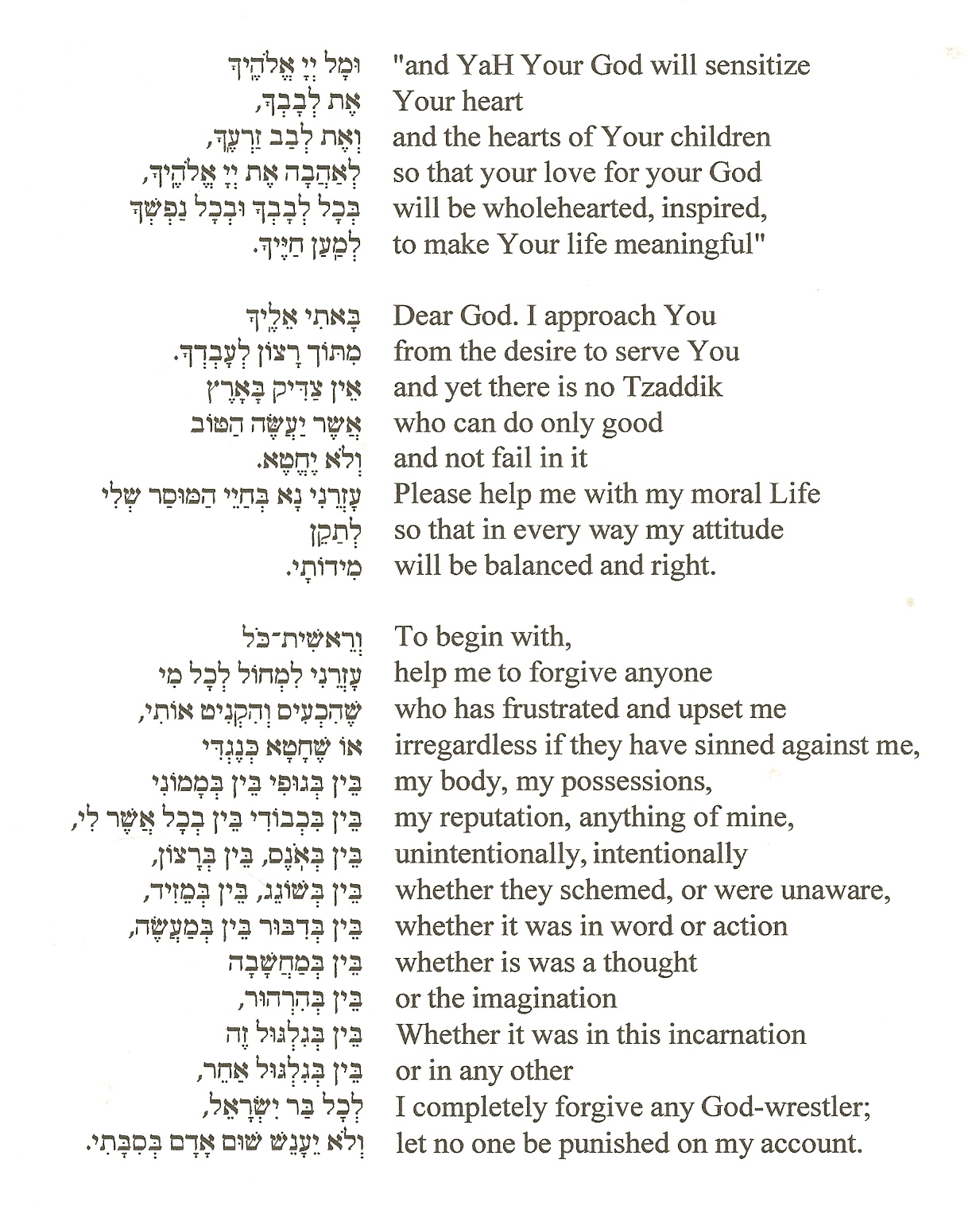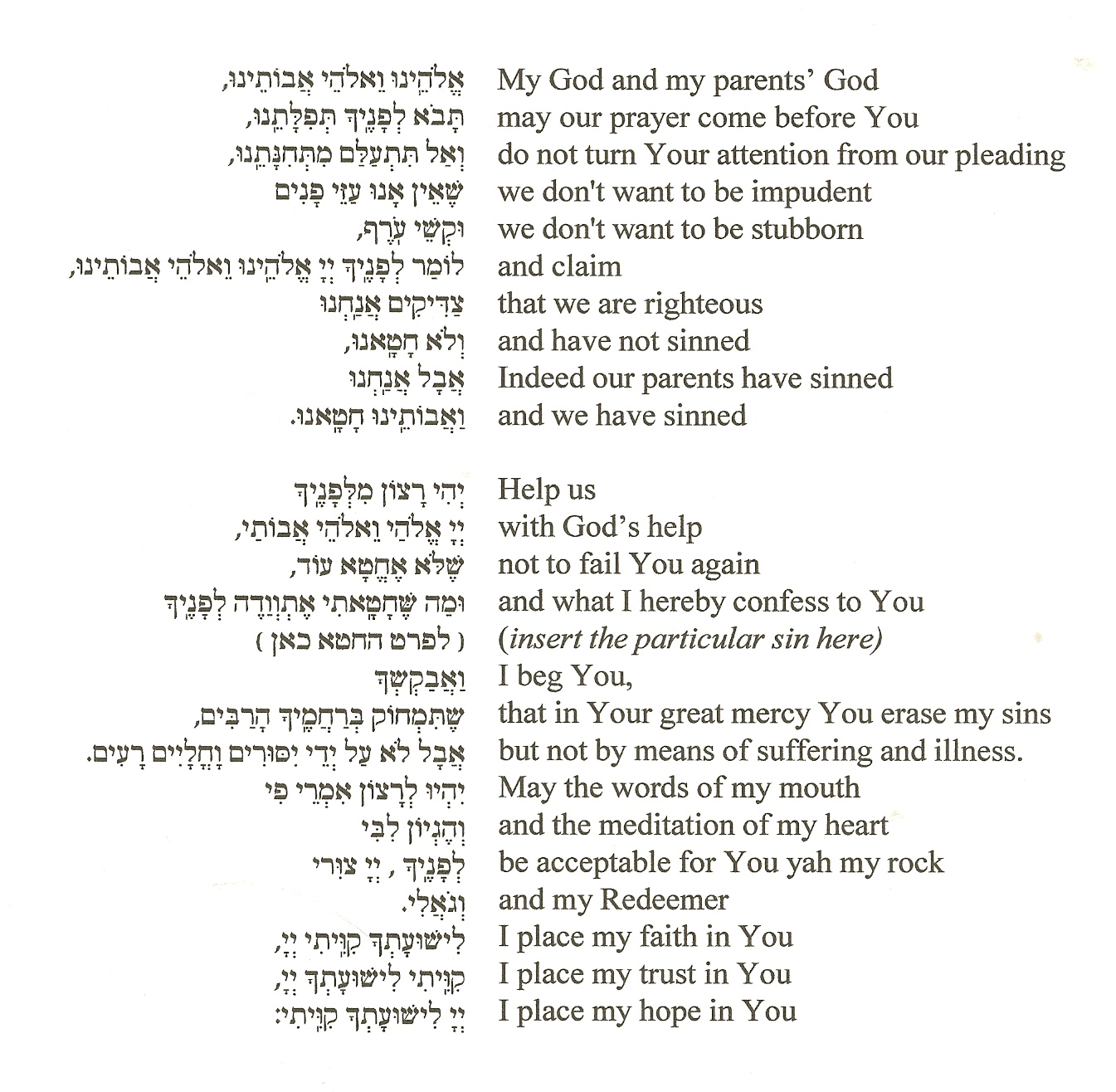Tachanun
Reb Zalman sends thoughts on the Tachanun prayer for your davvenen. The Tachanun occurs after the Tefillah / 18 Benedictions / Standing prayer during morning and afternoon weekday services for most of the year. Gabbai Seth Fishman, BLOG Editor.
“Each morning we davven, after the Amidah, we come to a place in the service when we have to look around and find a way to say or to not say Tachanun.”
[Gabbai Seth Note: There is a discussion in the Talmud about the calendar days when Tachanun is to be included in the service and when it is to be omitted. So each day, the minyan decides whether this section will be said on that particular day. Additionally, we are sometimes uncomfortable with having to say it for reasons mentioned below.]
“Much of what we find in the penitential liturgy makes us sound like nebbish wimps. In it, we complain about our suffering, and we try to cajole God to forgive us because we suffer.
“The really important point of Tachanun is that it should be a moment in which we enter a process of teshuvah / a returning to God, penitence. Mere recitation of those sentences, (a practice that may once have been more appropriate than it feels now), doesn’t seem to help us in order to get into the teshuvah process.
“The best thing is to enter into a silence; to remember a flaw in our behavior or character; to hold the flaw up to God; and to ask for help to be able to correct it. From a place of silence, there are times we become aware of responses. It is good to hold onto what comes to us in such moments, even writing notes to ourselves as we enter into this process so that we can work on what comes up again later.
“In the Tachanun prayer I have assembled below, I insert other chapters from the psalms along with my translations. If you’d like, read the texts in Hebrew or English before you enter into the silence to help stir your conscience to awareness.
“In this way, there will hopefully be a greater likelihood that these moments of Tachanun will become transformative for us and prepare us, with open hearts, to be ready for the reading of the Torah.”
Continue here with Shomer Yisroel…


